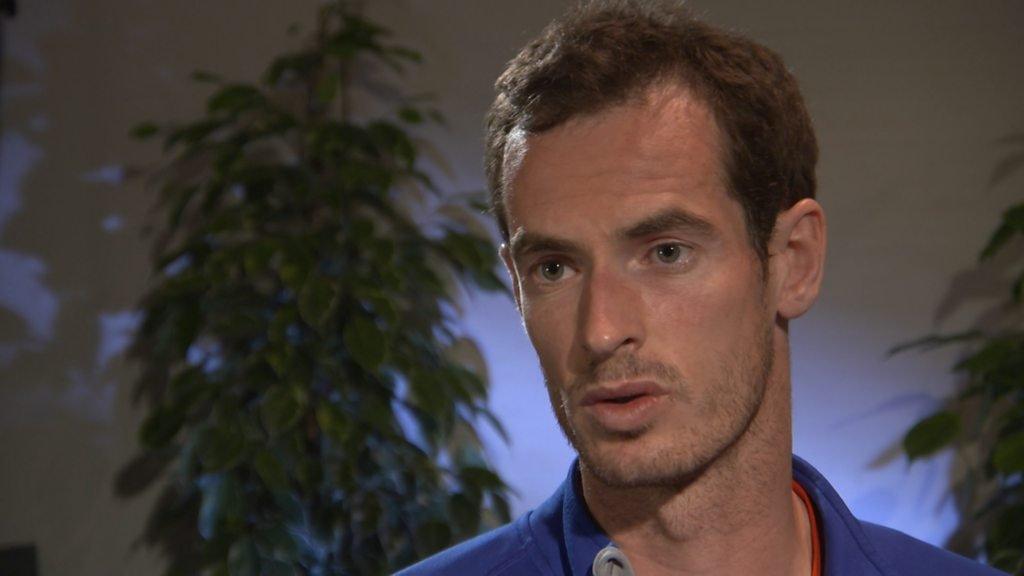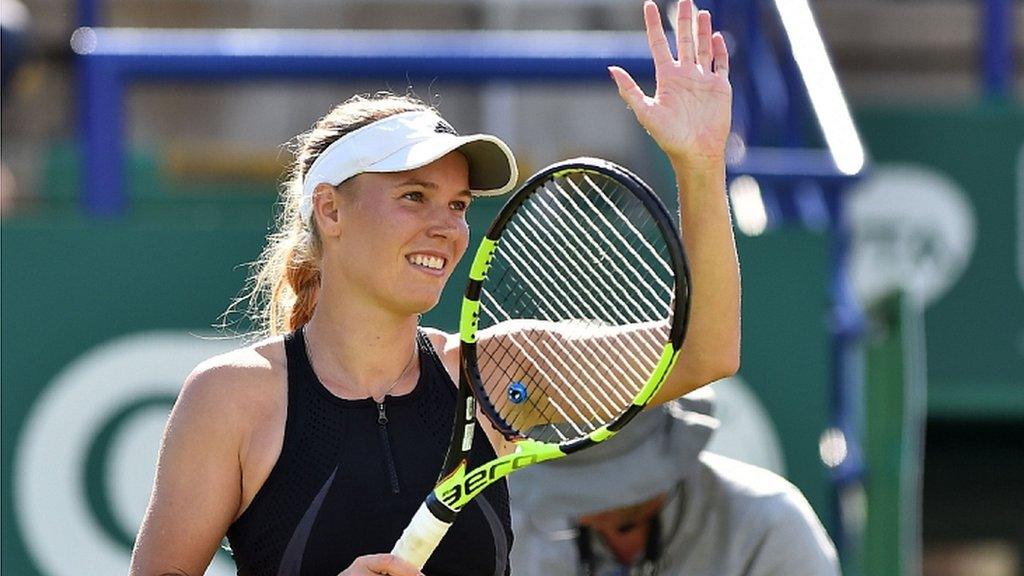Andy Murray column: Why my Queen's comeback against Kyrgios was so emotional
- Published
Returning Murray needs more matches
2018 Fever-Tree Championships on the BBC |
|---|
Venue: Queen's Club, London Dates: 18-24 June |
Coverage: Watch live on BBC Two, BBC iPlayer, BBC Red Button, Connected TVs, the BBC Sport website and app. |
Three-time Grand Slam champion Andy Murray made his competitive return to action at Queen's Club on Tuesday after almost a year out with a hip injury, losing a tight three-setter to Australian Nick Kyrgios.
After waiting 11 months to make my return to competitive action, Tuesday was an emotional day for me.
It was probably about 45 minutes before my practice that I was feeling a bit wobbly.
A lot of the other players, coaches and fans were giving me messages and wishing me luck, saying it was great to see me back on the court.
That's what made it emotional.
But then the closer I got to the match I became more nervous and started to concentrate on my gameplay and strategy.
Then once I got out there on court I didn't feel too emotional.
Obviously I was also really happy to be back because of everything that has gone on in the past 10 or 11 months.
It was a nice day - just a shame about the result.
Nerves help me concentrate
I don't get nervous in life in general - except for when it comes to playing tennis matches.
Obviously I haven't done that for quite a while so it was strange to get that feeling again.
Butterflies is how I get my nerves, I feel it a little bit in my legs.
Some people get it and it affects their decision-making, whereas when I get it those nerves allow me to concentrate much better.
Sometimes it can make my legs feel a bit heavy so I'm slower on the court. But that wasn't the case in the match against Nick.
Kyrgios test helped me learn a lot
Queen's 2018: Andy Murray loses to Nick Kyrgios on return from injury
Nick said before the match that he was the best guy for me to play on my comeback - I wouldn't agree with that.
I think it was just him trying to take away some of the pressure from himself because it was probably the first match we had played where he was expected to win.
There are other players in the draw who would have been easier matches than Nick.
But in a lot of ways it was good to have a challenge like that, because of the way the match went - it was close, it was a long match.
I learned a lot about where I am physically and about my game that maybe I wouldn't have learned against other players.
So it was good in some respects.
Nick is difficult to play at all times, on all of the surfaces, because he has all the shots and a brilliant serve.
Even when the rest of his game is not going that well he can still get free points on his serve and win games quite quickly.
He plays some unpredictable and strange shots that people find entertaining, but I'm prepared for that because I watch him a lot. I enjoy watching him.
So when I'm playing him it is not a surprise at all. I just try to get on with what is happening on my side of the court.
Recovery takes priority
My post-match routine has changed a little bit - I'm making sure I get all my recovery stuff done first as I have to take care of my body first and foremost.
I was straight into the ice bath after the match for about 12 minutes and then had a shower, did some stretching and had a massage with my physio.
Then I had some food, completed my media commitments and then I went back and did another 20-30 minutes with my physio before heading home.
Previously, I would probably have done the one session with my physio and that's it but I need to do a little bit more now to look after my body.
Andy Murray was talking to BBC Sport's Jonathan Jurejko
- Published20 June 2018

- Published24 June 2018
